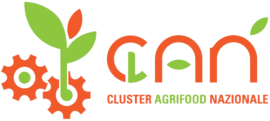Reducing Risk for a Fair and Resilient Food System
We’ll improve food security and safety for consumers everywhere by enabling and establishing resilient and dependable digitally enabled food supply chains.


The current food system is vulnerable to external shocks, putting stakeholders across the entire value chain at risk.
To reduce this risk and increase food security and safety for consumers everywhere, at all times, we must collaborate to enable fairer, more resilient and transparent food supply chains that are rooted in innovation and equitable business models.
EIT Food's Reducing Risk for a Fair and Resilient Food System mission framework is based on three targets where the EIT Food community can have the most impact, and in the areas of greatest need. These are:
- Improving sustainable and resilient food production practices
- Improving urban integration of shorter supply chains
- Investing in the growth of fair and resilient business models supporting food security.
This is reflected in our community building and advocacy activities and underpins the design of our funding and partnership opportunities.
Deep dive into our research on reducing risk, and the actions we recommend
In order to create a fairer and more resilient food system, radical food systems transformation is required to ensure risk is alleviated from all points of the food value chain and food security is prioritised across all activity.
To achieve this, key enablers of change include the digitalisation of consumer communication and labelling to build trust as well as the development of food insecurity indicators and framework.
Key findings
Resilient and sustainable farming practices
- Collaborative action along the food chain is required. Science needs to be connected to policy and practices with more interactive engagement between farmers and other stakeholders.
- Consumers need to be connected with rural communities and producers – consideration must be given to educating the next generation of farmers.
- Climate resilient farming practices may help overcome the risk posed for food safety, ensuring everyone has access to safe food – more resource efficient farming will reduce pressure on land and nature. Potential impact factors to consider: Soil health, biodiversity, water management based on hydrological context: increase water use effectively, reduce reliance on irrigation, 100% recycled water on farms.
Urban integration of food
- Creating areas where there is a local food chain created in the context of local supply logistics and where there are cooperative grocery shops that distribute the food. Moreover, the creation of a food council, which is a strategic partner for the implementation of policy activities is important.
- A key enabler of this opportunity is the creation of geo-maps of existing networks of linkages between consumers and producers in cities including capturing information on what role urban agriculture plays in the urban environment. Furthermore, education of citizens, and awareness of the food system from a young age, is strongly required.
Extended producer responsibility and true cost accounting
- Using sustainable packaging and labelling as an example, this opportunity places emphasis on the environmental impact of products.
- The availability of the right data enables partners in the value chain to address this topic.
- Requiring an LCA system that works fast, it places an emphasis on the environmental impact of products and can promote more resource efficient food production, helping to build the resilience and fairness of the food system.
- Government and policy makers would be required to mediate on this issue of price, sustainability and health impact of food.
Radical transformation of the supply chain and new retail models
- This idea focuses on the transformation of the retail model to prioritise retail of only sustainable products using sustainability indicators on food products, encompassing the sustainability of the food chain from form to fork.
- Improved transparency surrounding the sustainability of practices along the entire supply chain would be needed as well as a regulatory framework that only allows sustainable products to be commercialised – parameters of sustainability are therefore essential (local does not necessarily mean sustainable).
- Digital tools would allow consumers to assess the sustainability of the products that they buy.
- Education of actors within the value chain on how to transition to this system and business support would be needed.
Opportunities
Key indicators
- Access Availability
- Population health through diet
- Safety of food
Populations more at risk of experiencing these indicators
- Lower income households
- Minority groups & gender inequalities
- Primary producers
- Urban Populations
- Populations in Southern Regions
Key causes of food insecurity
- Climate Change
- Urbanisation
- Poverty and social inequality
- Scarcity of natural resources and land degradation
- Food safety issues
- Food distribution issues and supply chain ability to react to crises
- Overproduction and food waste
Factors contributing to food integrity
- Food product safety
- Food fraud mitigation
- Transparency from farm to fork
Consumer-industry relationships to build trust and public understanding in the food system
- Transparency of food supply chain
- Awareness of food production processes
- Clarity of food packaging labels and claims
- Trust in specific supply chain actors (farmers, manufacturers, retailers, authorities, policy-makers)
Key indicators | Populations more at risk of experiencing these indicators | Key causes of food insecurity | Factors contributing to food integrity | Consumer-industry relationships to build trust and public understanding in the food system |
|
|
|
|
|
Enablers for change
- Support research and practical testing of climate resistant crops
- Support research and implementation of innovations in practice
- Technologies which:
- are friendly to energy consumption, friendly to environment and require low human work
- provide safe, clean, fresh water in order to effectively manage water resources and improve crop production and livestock raising
- improve the nutritional quality of food, in order to promote the health of populations
- prioritise long-term storage and preservation of safe food, to prolong the shelf life of food and reduce the risk of foodborne, illness or contamination.
- More accurate and speedy measurement of contaminants and adulterants in food products in order to ensure food safety and integrity.
Have an idea that will improve the food system?
Want to get involved with our community? We regularly bring people together to help us all reach for our shared goals – and we’ve launched a competitive, open Impact Funding Framework to promote and fund ambitious, long-term collaboration that will lead to food systems change to benefit us all.

Reducing Risk for a Fair and Resilient Food System insight report
EIT Food has published a Reducing Risk for a Fair and Resilient Food System Insight report, co-designed and authored by a community of experts and organisations committed to driving change in this Mission area.
This report describes the agrifood systems change we all need to see to improve food security and increase food integrity. The transformation needed is more action than any one organisation is capable of by itself.
Download the report
How EIT Food is Reducing Risk for a Fair and Resilient Food System

Join our Programmes

Test Farms
Latest related news
Looking for more content related to Reducing Risk for a Fair and Resilient Food System?
Related startups in our network

How entrepreneurship is vital for the future of our food system

Top 3 Women Entrepreneurs in the Agrifood Space

The #AnnualFoodAgenda

Is vertical farming really sustainable?
Related partners

Join our Programmes

Test Farms

How entrepreneurship is vital for the future of our food system

Top 3 Women Entrepreneurs in the Agrifood Space

The #AnnualFoodAgenda

Is vertical farming really sustainable?
















